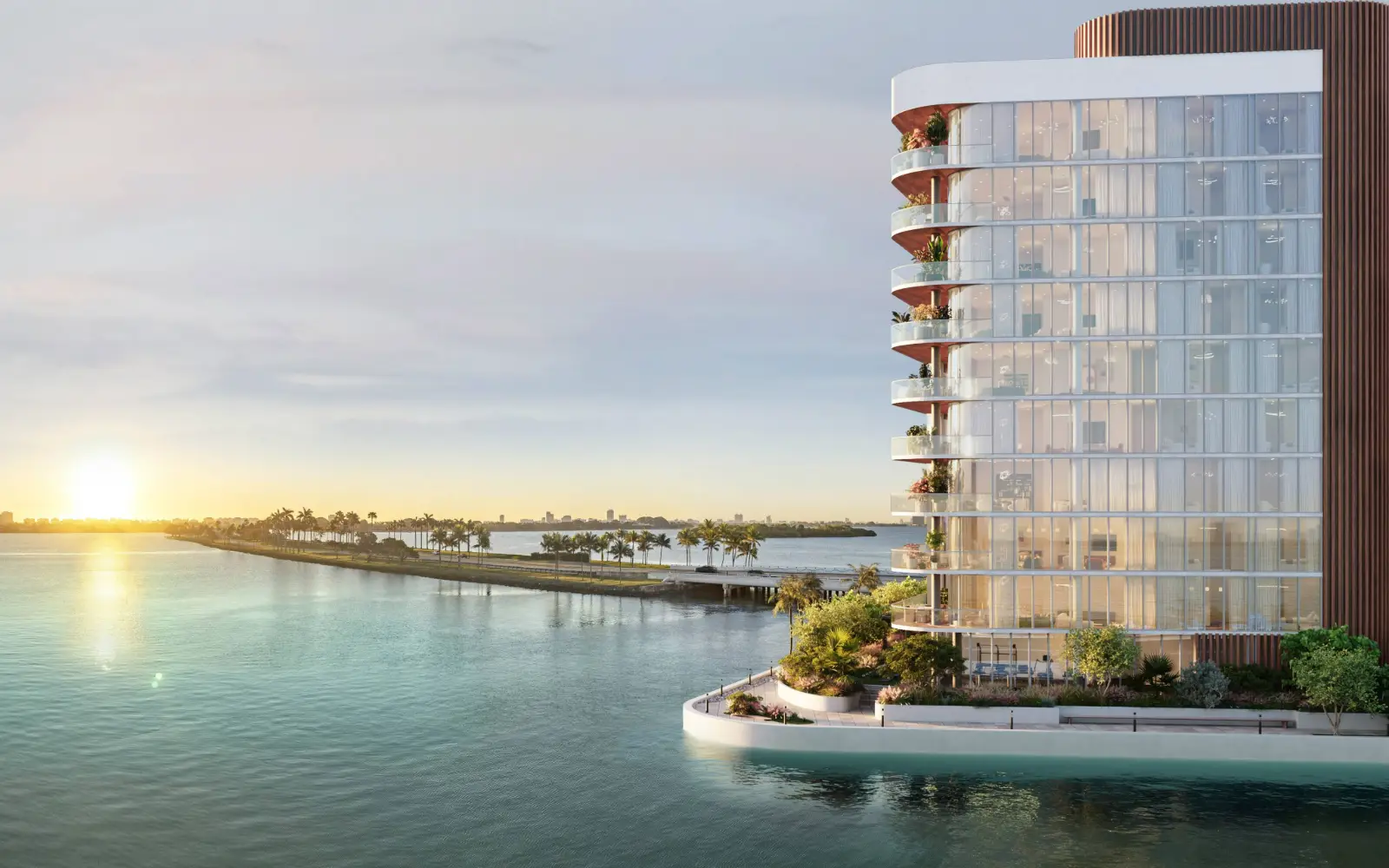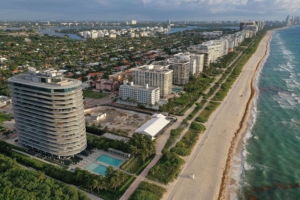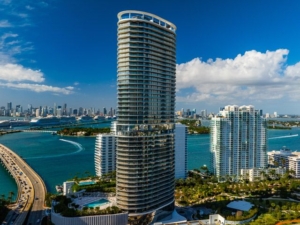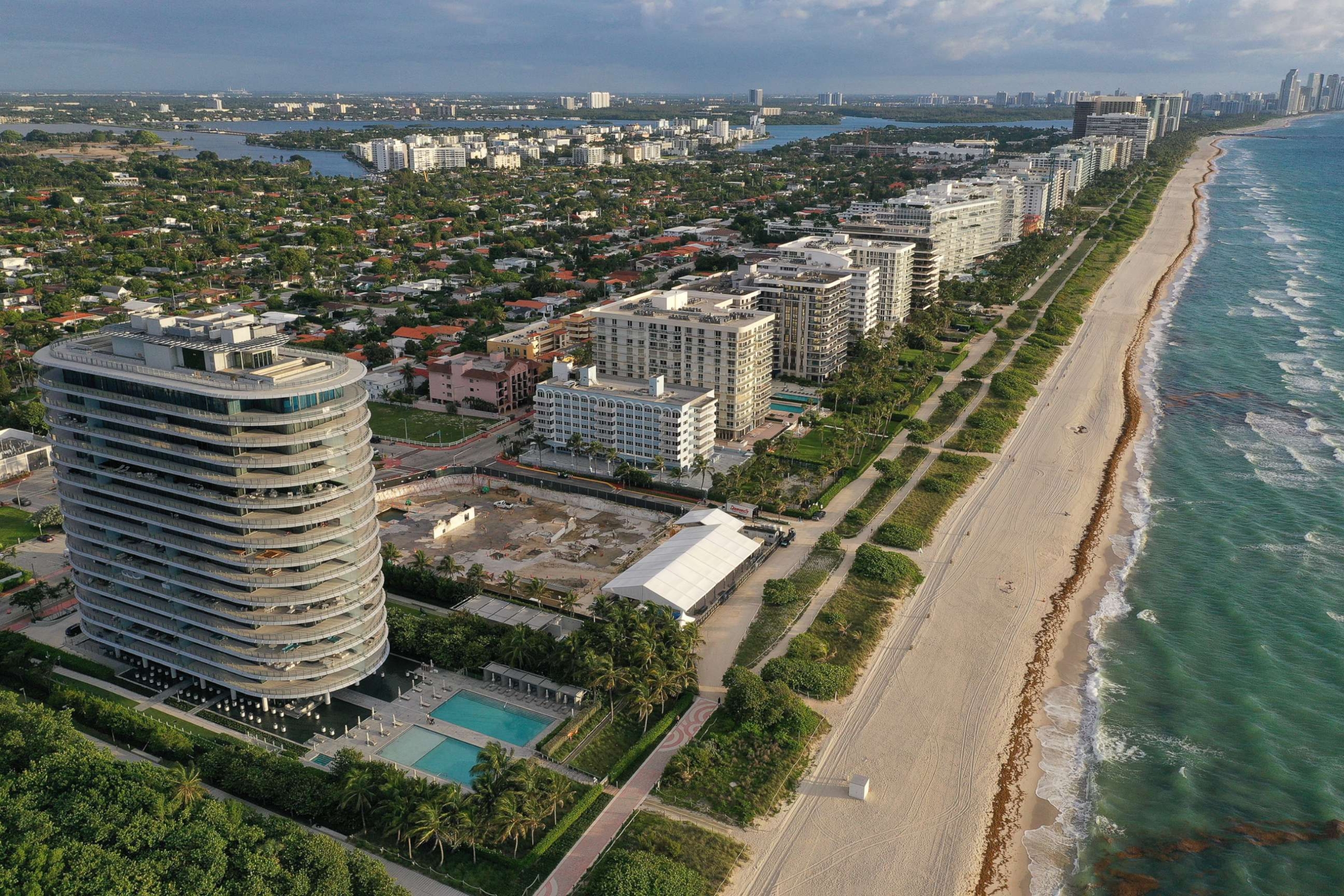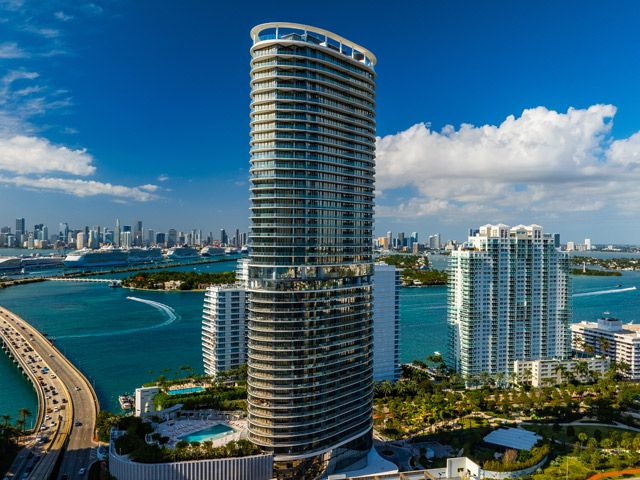Miami Beach Luxury Hotel Embroiled in Multi-Million Dollar Land Dispute
Historic South Beach Hotel at Center of Complex Legal Storm
An intricate legal battle has erupted over one of Miami Beach's most recognizable Art Deco properties, threatening the operation of the popular Kimpton Surfcomber Hotel. Sean and Nicole Mirmelli, acting as trustees for the Deirdre Mirmelli Irrevocable Trust, have initiated legal proceedings against Chisholm Properties South Beach, seeking damages exceeding $20.5 million and demanding court intervention to resolve what they describe as serious violations of a decades-old ground lease agreement.
The lawsuit, filed in Miami-Dade Circuit Court, centers on allegations that Chisholm Properties, under the leadership of Miami Beach hotelier Robert Balzebre, secured a substantial loan using property partially owned by the Mirmelli family without obtaining their required consent. The disputed transaction has now jeopardized a pending sale of the Mirmelli's ownership stake and created what their legal team describes as "a cloud over the title" to the valuable Collins Avenue property.
The Complicated Ownership Structure Behind the Dispute
The Kimpton Surfcomber's property arrangement represents a complex web of partial ownerships and historical agreements dating back to the post-World War II era. The hotel sits on two adjacent parcels – one at 1731 Collins Avenue and another at 1717 Collins Avenue.
The Mirmelli family has maintained 50 percent ownership of the 1731 Collins Avenue parcel since the mid-1990s, with Chisholm Properties acquiring the remaining 50 percent stake in 2004. Critically, the Mirmellis control the ground lease for this particular lot, operating under an agreement originally established in 1948 when the hotel was constructed.
Balzebre's company maintains complete ownership of both the second parcel at 1717 Collins Avenue and the hotel building itself, having purchased them for $1.4 million. This divided ownership structure, combined with the long-term ground lease, creates precisely the type of complicated arrangement that frequently leads to disputes in Miami's valuable beachfront property market.
Allegations of Unauthorized Financing and Document Forgery
At the heart of the lawsuit are serious allegations surrounding a $20.5 million loan secured by Chisholm Properties with Bank of America in 2014. According to court documents, this financing came three years after Chisholm completed significant renovations to the property, which coincided with Kimpton Hotels taking over management of the establishment.
The Mirmellis assert that the mortgage was procured without their knowledge or consent, despite their substantial property interest. More seriously, they allege that an estoppel letter – a crucial document verifying the current status of the lease agreement – contains a forged signature attributed to Nicole Mirmelli.
"My clients grew up at the Surfcomber hotel," stated Joseph Pardo, the attorney representing the Mirmelli trustees. "Imagine you woke up one morning and learned that your neighbor put a mortgage on a property that's been in your family for generations."
In an affidavit attached to the complaint, Nicole Mirmelli explicitly denies signing the document, claiming she had never seen it until recently during due diligence for a pending sale of their ownership stake. Her legal team emphatically states, "We did our homework and very quickly determined the certificate is not authentic."
Property Managers Defend Their Stewardship
Chisholm Properties has forcefully rejected the allegations, with attorneys Philippe Lieberman and Abbey Kaplan issuing a joint statement asserting that the lawsuit has no merit. They defend their client's management of the property, suggesting that their interventions rescued a deteriorating asset.
"The Surfcomber hotel is a great property that fell into disrepair when operated by the Mirmelli family," the statement claimed, "and has since been brought back to iconic status because of Chisholm's great effort, hard work, and significant multimillion-dollar renovation that has enhanced the property."
This counternarrative portrays Chisholm as responsible stewards who invested substantially to preserve and enhance a historic Miami Beach landmark. The multimillion-dollar renovations completed in 2011 did indeed transform the property into one of the area's most sought-after boutique hotels under Kimpton's management.
The Broader Impact on Miami Beach Hospitality
This dispute unfolds against the backdrop of Miami Beach's thriving luxury hotel market, where historic Art Deco properties represent both cultural heritage and valuable commercial assets. The Kimpton Surfcomber, with its 186 rooms spread across three stories, stands as a prime example of the preserved architectural heritage that defines the South Beach aesthetic.
The potential disruption to hotel operations, should the Mirmellis succeed in their quest for a court-appointed receiver, could have significant implications for both the property's reputation and the broader Miami Beach hospitality ecosystem. With the Mirmellis seeking a court order to force Chisholm to cease hotel operations on their portion of the land, the future of this iconic establishment remains uncertain.
Insights About This Miami Beach Property Dispute
Why are complex ground leases common in Miami Beach's historic districts?
Many of Miami Beach's most iconic properties were developed under ground lease arrangements in the mid-20th century, allowing original landowners to maintain long-term interests while enabling hotel development. These 99-year leases created complicated legal structures that persist today, often involving multiple stakeholders with varying interests in single properties. As these historic properties have increased dramatically in value, disputes over ownership rights, improvements, and financing have become more common and more financially significant.
How does this dispute reflect larger trends in Miami's luxury real estate market?
This case exemplifies the increasing complexity and stakes in Miami's premium real estate sector, where historic properties now command values that were unimaginable when original agreements were crafted. Family trusts maintaining generational property interests increasingly find themselves navigating complex commercial relationships with sophisticated hospitality operators and financiers. As property values continue climbing, disputes over control, improvements, and financing arrangements have become more contentious and legally complex.
What happens when a hotel operates on land with divided ownership?
Hotels operating on parcels with fragmented ownership face unique operational challenges. Management decisions, improvement plans, and especially financing arrangements typically require consent from all stakeholders with property interests. When communication breaks down or parties have divergent objectives, seemingly routine business operations can trigger major legal disputes. This case illustrates how even successful properties can become entangled in litigation when ownership structures involve multiple parties with distinct legal rights.
Could this dispute affect other historic Miami Beach hotels?
Many of South Beach's Art Deco hotels operate under similarly complex ownership and ground lease arrangements dating back decades. This high-profile case could potentially inspire other legacy stakeholders to examine their own agreements more closely, potentially triggering additional disputes across Miami Beach's hospitality landscape. Property investors and hotel operators may face increased scrutiny of historical title documents and lease agreements in the wake of this litigation.

